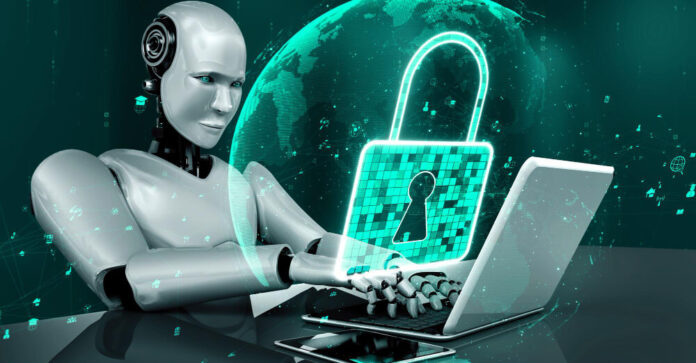Cybersecurity is a critical necessity for businesses of all sizes. As technology evolves, so do the threats that lurk in the shadows of the internet. Atlanta, a burgeoning tech hub, is no stranger to these challenges. With the rise of artificial intelligence (AI), we’re witnessing a new breed of cyberattacks that are more sophisticated, harder to detect, and potentially more devastating than ever before.
The AI Cyber Threat Landscape
Smarter Phishing Campaigns
Gone are the days when phishing emails were easy to spot due to their broken English and outlandish claims. AI-powered phishing attacks are now crafting personalized, convincing messages that can fool even the most vigilant employees. These emails might reference recent company events or mimic the writing style of a colleague, making them particularly insidious.
Adaptive Malware
Traditional malware follows a set pattern, making it easier for antivirus software to detect and neutralize. AI-driven malware, however, can adapt on the fly, changing its code to evade detection. It’s like trying to hit a moving target that’s constantly shapeshifting.
Automated Vulnerability Scanning
AI systems can tirelessly probe networks for weaknesses, identifying and exploiting vulnerabilities faster than human hackers ever could. This automation allows cybercriminals to cast a wider net, potentially compromising multiple targets simultaneously.
Deep Fake Social Engineering
Imagine receiving a video call from your CEO asking you to transfer funds urgently. Except it’s not your CEO—it’s a deepfake created by AI. This scenario isn’t science fiction; it’s a real threat that businesses face today.
Atlanta’s Cybersecurity Landscape
Atlanta’s diverse business ecosystem, from fintech startups to Fortune 500 companies, makes it an attractive target for cybercriminals. The city’s rapid growth in the tech sector has led to an increased demand for robust cybersecurity measures. Firms offering cybersecurity services in Atlanta are stepping up to meet this challenge, but the landscape is constantly evolving.
Key Challenges for Atlanta Businesses
- Skill Gap: There’s a shortage of cybersecurity professionals with expertise in AI and machine learning.
- Rapid Tech Adoption: As businesses digitize rapidly, security often takes a backseat to functionality and speed-to-market.
- Regulatory Compliance: Industries like healthcare and finance face strict data protection regulations, adding another layer of complexity to their cybersecurity efforts.
Staying Ahead of the Curve
So, how can Atlanta firms protect themselves against these AI-powered threats? Here are some strategies to consider:
1. Embrace AI for Defense
Fight fire with fire. Implementing AI-powered security tools can help detect and respond to threats in real-time. These systems can analyze network traffic patterns, identify anomalies, and even predict potential attack vectors before they’re exploited.
2. Continuous Employee Training
Your employees are your first line of defense. Regular, up-to-date training on the latest cybersecurity threats and best practices is crucial. This includes teaching staff how to spot sophisticated phishing attempts and deepfakes.
3. Multi-Factor Authentication (MFA)
Implement strong MFA across all systems. Even if credentials are compromised, MFA adds an extra layer of security that’s tough for AI to crack.
4. Zero Trust Architecture
Adopt a “trust no one” approach to network security. Zero trust models assume that no user or device should be trusted by default, even if they’re already inside the network perimeter.
5. Regular Penetration Testing
Conduct frequent penetration tests using AI-powered tools to identify vulnerabilities before the bad guys do. This proactive approach can save your business from potential disasters.
6. Collaboration and Information Sharing
Join local cybersecurity forums and groups. Sharing information about emerging threats and best practices can benefit the entire Atlanta business community.
7. Invest in Advanced Endpoint Protection
Traditional antivirus software isn’t enough anymore. Look for endpoint protection platforms that use AI and behavioral analysis to detect and prevent sophisticated attacks.
The Role of Cybersecurity Services in Atlanta
As the threat landscape evolves, so does the need for specialized expertise. Cybersecurity services in Atlanta are rising to the challenge, offering a range of solutions tailored to the unique needs of local businesses. These services often include:
- 24/7 Monitoring and Incident Response
- AI-Powered Threat Detection and Analysis
- Compliance Consulting for Industry-Specific Regulations
- Custom Security Architecture Design
- Employee Cybersecurity Training Programs
Partnering with a local cybersecurity firm can provide Atlanta businesses with the expertise and resources needed to combat AI-powered threats effectively.
Looking Ahead: The Future of AI in Cybersecurity
As we grapple with the challenges posed by AI-powered cyberattacks, it’s important to remember that AI is a double-edged sword. The same technology that powers these sophisticated attacks can also be harnessed to create more robust defenses.
Researchers are working on developing AI systems that can predict and prevent attacks before they happen, much like how weather forecasts predict storms. We’re also seeing advancements in AI-driven forensics, which can analyze the aftermath of an attack to prevent similar incidents in the future.
The key for Atlanta firms is to stay informed, remain vigilant, and be willing to adapt. The cybersecurity landscape will continue to evolve, and businesses that prioritize security and embrace innovative solutions will be best positioned to thrive in this new digital frontier.
In conclusion, while AI-powered cyberattacks present a formidable challenge, they’re not insurmountable. By leveraging the right tools, expertise, and mindset, Atlanta’s businesses can not only defend against these threats but also use them as an opportunity to strengthen their overall security posture. In the ever-changing world of cybersecurity, staying ahead isn’t just an advantage—it’s a necessity.


